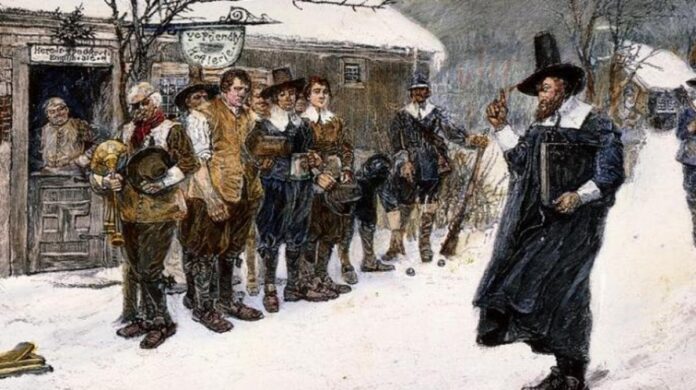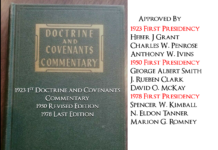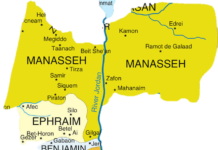Christmas, the holiday commemorating the birth of Jesus Christ, is celebrated by a majority of Christians on December 25 in the Gregorian calendar. But early Christians did not celebrate his birth, and no one knows on which date Jesus was actually born (some scholars believe that the actual date was in the early spring, placing it closer to Easter, the holiday commemorating his Resurrection). Encyclopædia Britannica, Inc.
April 6th
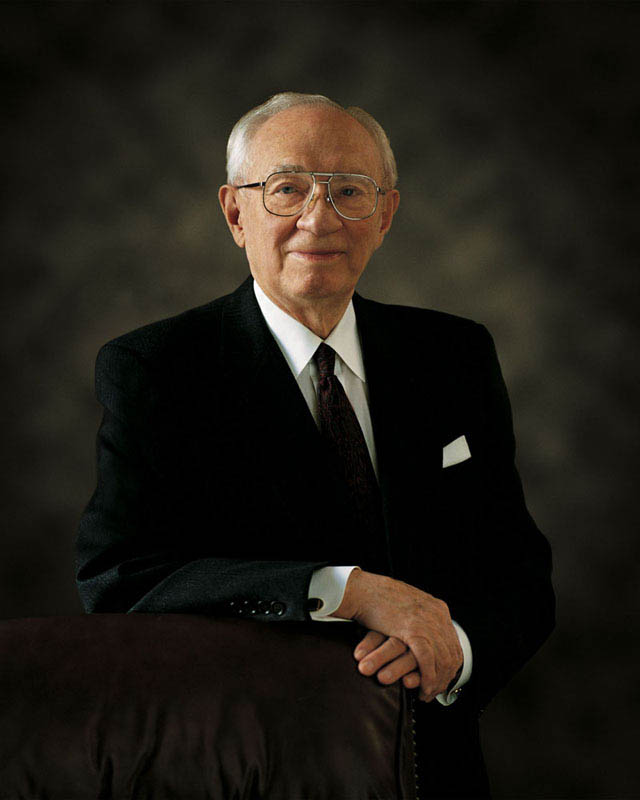
President Gordon B. Hinckley said, “In ancient times Christmas, commemorating the birth of the Christ child, was celebrated at this solstice season [on December 25]. Men had no knowledge of the time of His birth, and so they came to bond the celebration of Christmas with the celebration of the return of the sun. While we now know through revelation the time of the Savior’s birth, we observe the 25th of December with the rest of the Christian world.”
“As to the season of the year in which Christ was born, there is among the learned as great a diversity of opinion as that relating to the year itself. It is claimed by many Biblical scholars that December 25th, the day celebrated in Christendom as Christmas, cannot be the correct date. We believe April 6th to be the birthday of Jesus Christ as indicated in a revelation of the present dispensation already cited [D&C 20:1], in which that day is made without qualification the completion of the one thousand eight hundred and thirtieth year since the coming of the Lord in the flesh. This acceptance is admittedly based on faith in modern revelation, and in no wise is set forth as the result of chronological research or analysis. We believe that Jesus Christ was born in Bethlehem of Judea, April 6, B.C. 1.” James A. Talmage
Customs of the People are Vain:
Many of today’s celebrations of Christ have been adopted and ridiculed by evil people and pagans. Obviously there is the greater good we look upon for Easter and Christmas. For example here is a pagan tradition that has been held over from the Bible.
In Jeremiah we are warned not to worship and decorate trees. Jeremiah 10:1-5 says, “Hear ye the word which the Lord speaketh unto you, O house of Israel: Thus saith the Lord, Learn not the way of the heathen, and be not dismayed at the signs of heaven; for the heathen are dismayed at them. For the customs of the people are vain: for one cutteth a tree out of the forest, the work of the hands of the workman, with the axe. They deck it with silver and with gold; they fasten it with nails and with hammers, that it move not. They are upright as the palm tree, but speak not: they must needs be borne, because they cannot go. Be not afraid of them; for they cannot do evil, neither also is it in them to do good.”
What is a Puritan?
So who, then, were the Puritans? While the Separatists believed that the only way to live according to Biblical precepts was to leave the Church of England entirely, the Puritans thought they could reform the church from within. Sometimes called non-separating Puritans, this less radical group shared a lot in common with the Separatists, particularly a form of worship and self-organization called “the congregational way.”

In a congregational church, there is no prayer book, no formal creeds or belief statements, and the head of the church isn’t a Pope or the King, but Jesus Christ as revealed in the scriptures. Sabbath worship doesn’t include sermons and preaching, but extemporaneous “testifying” by the Holy Spirit. As an organizing principle, congregational churches are bound together by a “covenant” and make decisions democratically, including the selection of religious leaders.
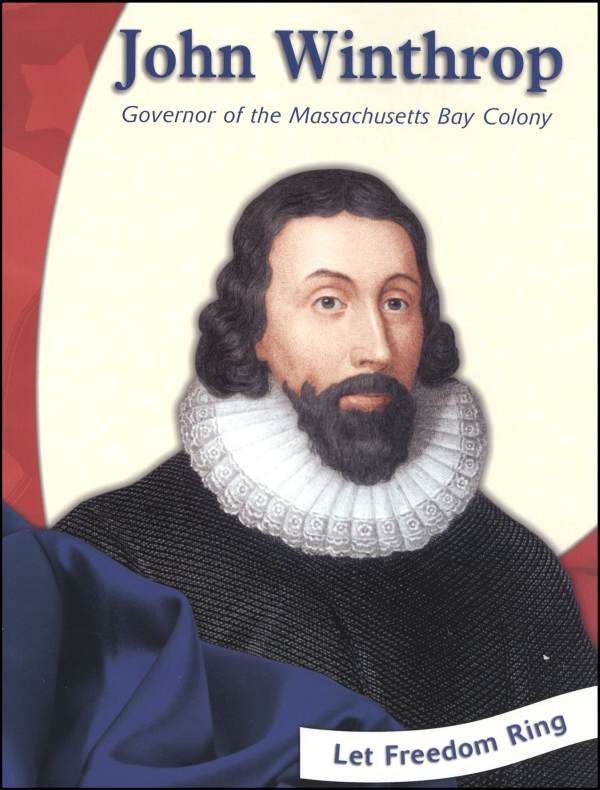
The biggest difference between the Separatists and the Puritans is that the Puritans believed they could live out the congregational way in their local churches without abandoning the larger Church of England…
The Puritans ultimately decided to journey to the New World, too, but not for the same reasons as the Separatists. The Puritans, who already had some money, saw a favorable investment opportunity by owning land in America. And somewhat paradoxically, the Puritans also believed that by being far away from England, they could create the ideal English church.
“[The Puritan leader] John Winthrop talks about creating a church that will be a light to the nations,” says Oman. “The Pilgrims never really expressed that desire.”

When the Puritans settled the Massachusetts Bay Colony in 1630, they arrived in 17 ships carrying more than 1,000 passengers. They came with money and resources and divinely ordained arrogance. Just 10 years later, the Massachusetts Bay Colony was a Puritan stronghold of 20,000, while humble Plymouth was home to just 2,600 Pilgrims. Plymouth was fully swallowed up by Mass Bay just a few decades later.” What’s the Difference Between Puritans and Pilgrims? by DAVE ROOS See my blog titled PURITANS & PILGRIMS- SAME PEOPLE? Here

When Massachusetts Banned Christmas
“Ebenezer Scrooge and the Grinch had nothing on the 17th-century Puritans, who actually banned the public celebration of Christmas in the Massachusetts Bay Colony for an entire generation.
The pious Puritans who sailed from England in 1630 to found the Massachusetts Bay Colony brought with them something that might seem surprising for a group of devout Christians—contempt for Christmas. In a reversal of modern practices, the Puritans kept their shops and schools open and churches closed on Christmas, a holiday that some disparaged as “Foolstide.”

After the Puritans in England overthrew King Charles I in 1647, among their first items of business after chopping off the monarch’s head was to ban Christmas. Parliament decreed that December 25 should instead be a day of “fasting and humiliation” for Englishmen to account for their sins. The Puritans of New England eventually followed the lead of those in old England, and in 1659 the General Court of the Massachusetts Bay Colony made it a criminal offense to publicly celebrate the holiday and declared that “whosoever shall be found observing any such day as Christmas or the like, either by forbearing of labor, feasting, or any other way” was subject to a 5-shilling fine.
Why did the Puritans loathe Christmas? Stephen Nissenbaum, author of The Battle for Christmas, says it was partly because of theology and partly because of the rowdy celebrations that marked the holiday in the 1600s.
Editor’s Note: While most of us celebrate Christmas with the joy and happiness of our Savior coming down in flesh and blood, many of us just use it as time off work, or a day to get presents, or a time other than to worship our Savior. The Puritans felt some of the same feelings. I propose we all use EVERY day as a special day to celebrate the Savior’s birth, death, and resurrection, so daily we are thankful for life itself because of Jesus Christ.
History.com continues saying, “In their strict interpretation of the Bible, the Puritans noted that there was no scriptural basis for commemorating Christmas. “The Puritans tried to run a society in which legislation would not violate anything that the Bible said, and nowhere in the Bible is there a mention of celebrating the Nativity,” Nissenbaum says. The Puritans noted that scriptures did not mention a season, let alone a single day, that marked the birth of Jesus.

Even worse for the Puritans were the pagan roots of Christmas. Not until the fourth century A.D. did the church in Rome ordain the celebration of the Nativity on December 25, and that was done by co-opting existing pagan celebrations such as Saturnalia, an ancient Roman holiday of lights marked with drinking and feasting that coincided with the winter solstice. The noted Puritan minister Increase Mather wrote that Christmas occurred on December 25 not because “Christ was born in that month, but because the heathens’ Saturnalia was at that time kept in Rome, and they were willing to have those pagan holidays metamorphosed into Christian [ones].” According to Nissenbaum, “Puritans believed Christmas was basically just a pagan custom that the Catholics took over without any biblical basis for it. The holiday had everything to do with the time of year, the solstice and Saturnalia and nothing to do with Christianity.”
The pagan-like way in which Christmas was celebrated troubled the Puritans even more than the underlying theology. “Men dishonor Christ more in the 12 days of Christmas than in all the 12 months besides,” wrote 16th-century clergyman Hugh Latimer. Christmas in the 1600s was hardly a silent night, let alone a holy one. More befitting a rowdy spring break than a sacred occasion, Christmas revelers used the holiday as an excuse to feast, drink, gamble on dice and card games and engage in licentious behavior.
Trick or Treating??
In a Yuletide twist on trick-or-treating, men dressed as women, and vice versa, and went door-to-door demanding food or money in return for carols or Christmas wishes. “Bands of mostly young people and apprentices would go house to house and demand that the doors of prosperous people be open to them,” Nissenbaum says. “They felt they had a right to enter the houses of the wealthy and demand their high-quality food and drink—not meager handouts, but the stuff prosperous people would serve to their own families.” Those who failed to comply could be greeted with vandalism or violence.
Even after public commemoration of Christmas was once again legal in England following the restoration of the monarchy in 1660, the Yuletide ban remained firmly on the books in Massachusetts for an entire generation. Although outlawed in public, the celebration of Christmas endured in private homes, particularly in the fishing towns further afield from the center of Puritan power in Boston that Nissenbaum writes were “notorious for irreligion, heavy drinking and loose sexual activity.”

In his research, Nissenbaum found no records of any prosecutions under the 1659 law. “This was not the secret police going after everybody,” he says. “It’s clear from the wording of the ban that the Puritans weren’t really concerned with celebrating the holiday in a quiet way privately. It was for preventing disorders.”
The prohibition of public Christmas celebrations was unique to Massachusetts, and under the reign of King Charles II political pressure from the motherland steadily increased for the colony’s Puritan leaders to relax their intolerant laws or risk losing their royal charter. In 1681, the Massachusetts Bay Colony reluctantly repealed its most odious laws, including the ban on Christmas.

Hostility toward the public celebration of Christmas, however, remained in Massachusetts for years to come. When newly appointed royal governor Sir Edmund Andros attended Christmas Day religious services at Boston’s Town House in 1686, he prayed and sang hymns while flanked by Redcoats guarding against possible violent protests. Until well into the 1800s, businesses and schools in Massachusetts remained open on December 25 while many churches stayed closed. Not until 1856 did Christmas—along with Washington’s Birthday and the Fourth of July—finally become a public holiday in Massachusetts. History.com UPDATED:DEC 21, 2020 ORIGINAL:DEC 22, 2015


